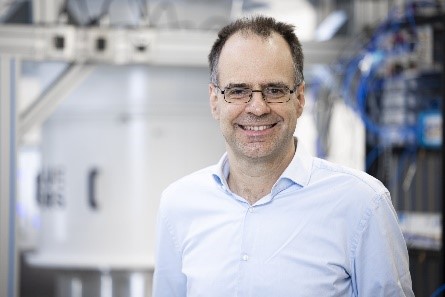Vision & Mission
Twenty-six German research institutions and companies are working on a quantum computer with improved error rates in the collaborative project QSolid – the largest of its kind in Germany. In the medium term, the quantum computer shall be able to control 10 qubits, and in the long term even 30 at the highest possible fidelity. The project aims to develop a comprehensive ecosystem that will be integrated into Forschungszentrum Jülich’s supercomputing environment JUNIQ and made accessible to external users. The goal is to make Germany a global leader in the field of quantum technology and thus to maintain independence and to open up numerous new applications in science and industry.
Quantum computers promise breakthroughs in information processing and they could vastly exceed the capabilities of conventional supercomputers for certain tasks. However, the technology is still in its infancy. Although developing a usable quantum computer comes with enormous challenges, it also offers an opportunity to set industry standards and secure intellectual property rights from the outset.

© Forschungszentrum Jülich / Sascha Kreklau
“QSolid is ready to deliver on high fidelities and tight integration as an all-German project. We need to collaborate on the best solutions in order to deliver disruptive machines. The opponent is not another country, not another organisation, not another project, not another Bundesland. It is Nature‘s tendency to degrade engineered quantum systems into classical states over time.”
- Frank Wilhelm-Mauch, QSolid Coordinator
Years of
Duration
Million € Budget
German Project
Partners
% Industry share
among the partners
